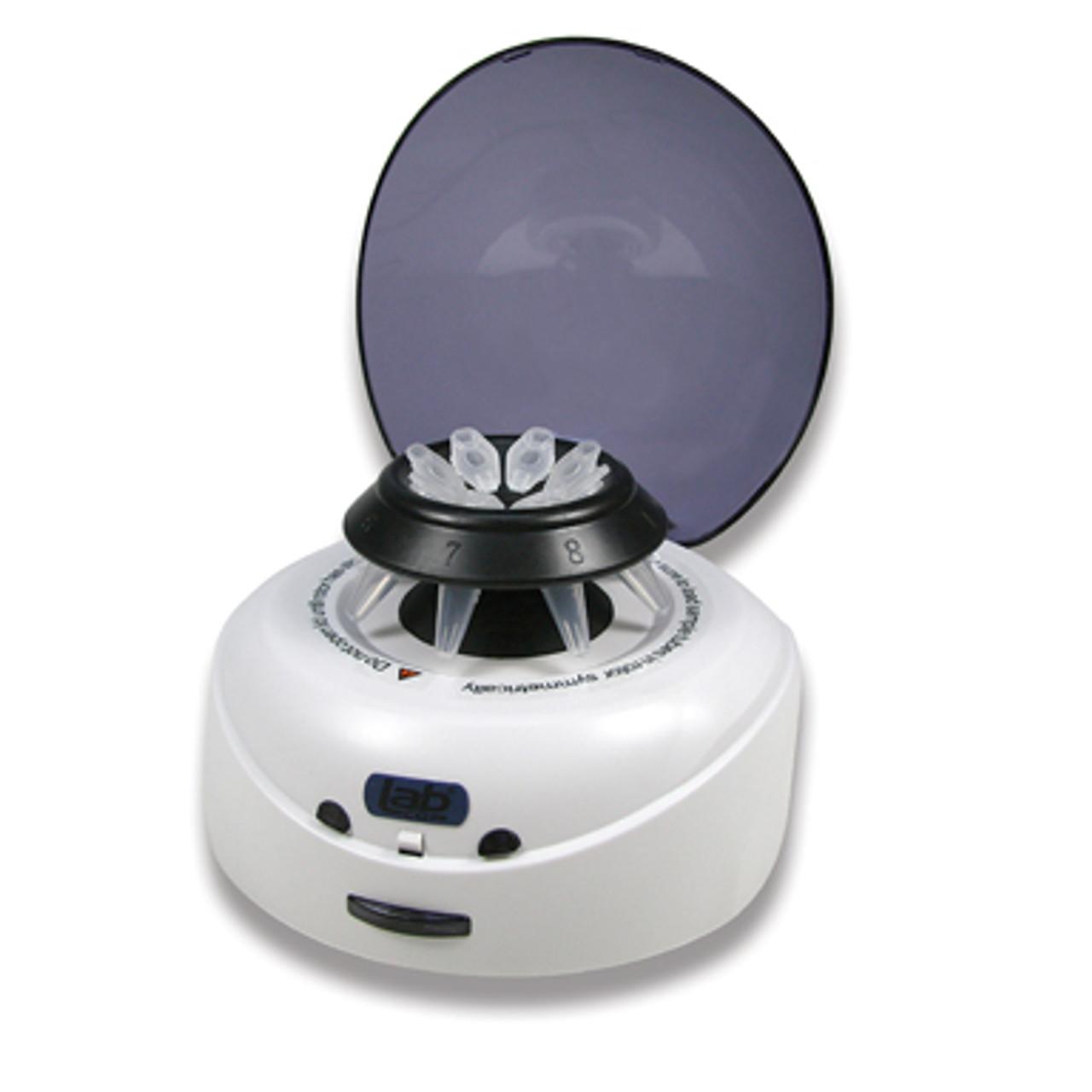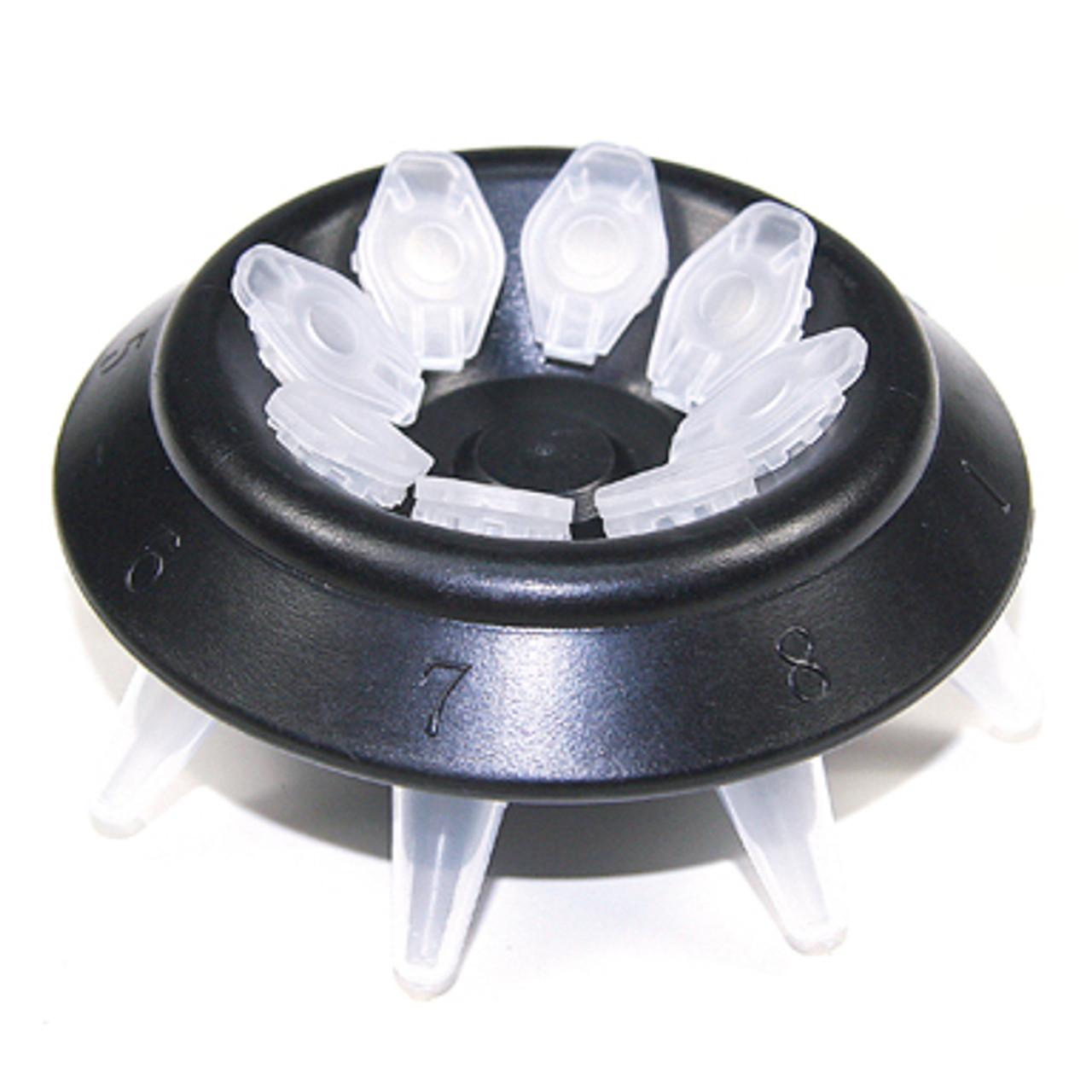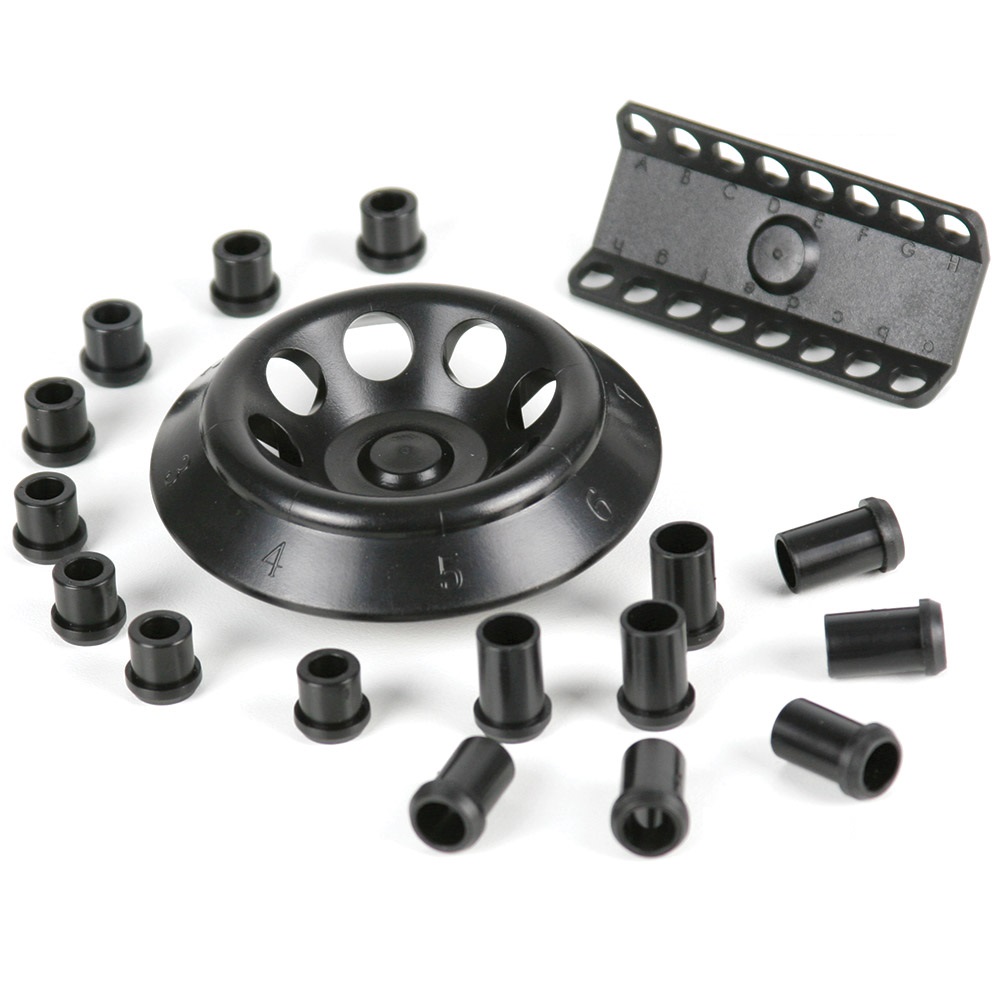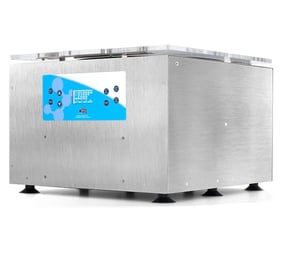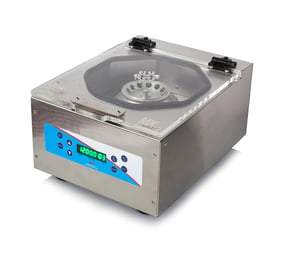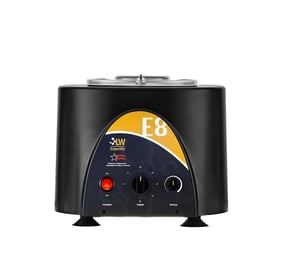Micro High Speed Centrifuge 400.003.005
Overview
The LabCo Compact Micro Centrifuge is a versatile and efficient tool ideal for quick spin downs and micro filtration in any laboratory setting. Its compact design and ease of use make it a convenient option for a variety of applications.
Key Features:
- Quick Spin Downs and Micro Filtration: Designed to handle rapid centrifugation tasks efficiently.
- Dual Door Interlock Design: Ensures safe operation by preventing the centrifuge from running if the lid is open.
- Transparent Blue Lid: Provides clear visibility of the rotor and samples during operation.
- Easy Rotor Removal: The rotor is seated on a tapered shaft for quick and easy changes.
- Fast Operation: Starts and stops in seconds, with start/stop functions controlled by closing and opening the lid.
- Supplied Rotors: Comes with rotors for 1.5/2ml Micro Tubes and PCR Tubes (tubes not supplied).
Technical Specifications:
- Tube Capacity: 8 x 1.5/2ml and 16 x 0.2ml PCR Strip
- Maximum Speed: Up to 7,000 rpm
- Maximum RCF: 2,680 x G
- Run Time: Continuous
- Driving Motor: DC Motor
- Power: 240V/60Hz
- Dimensions: 150 x 150 x 117mm
- Weight: 1kg
Package Includes:
- Micro Centrifuge
- Rotors for micro tubes and PCR tubes
Additional Features:
- Compact and Convenient Design: The micro centrifuge's small footprint makes it a space-saving option for any lab, while its user-friendly design ensures ease of use.
- Safety First: The lid interlock design prevents the centrifuge from operating if the lid is open, ensuring safe operation at all times.
- Clear Visibility: The transparent lid allows for clear visibility of the rotor and samples during operation, providing peace of mind and easy monitoring.
- Versatile Applications: Ideal for quick spin downs, micro filtration, PCR preparation, and sample separation.
- Easy Maintenance: Designed for easy cleaning and rotor replacement.
The LabCo Compact Micro Centrifuge is an essential addition to any laboratory, offering reliable performance and versatility. Its compact size, safety features, and ease of operation make it the perfect choice for quick and efficient sample processing. Choose the LabCo Compact Micro Centrifuge for all your laboratory centrifugation needs and experience the convenience and efficiency it brings to your workflow.
Specifications
- Dimensions
-
400.003.005 External WxDxH (mm) 150 x 150 x 117 - Technical Specifications
-
400.003.005 Maximum Speed 7,000rpm Maximum RCF 2,680 x G Run Time Continuous Driving Motor DC Motor Power 240V/60Hz Noise Level ≤ 45 dB Weight (kg) 0.5 - Features
-
- Ideal for quick spin downs and micro filtration
- Includes two rotors with delivery
- Transparent blue lid
- Dual door interlock design
- Easy to remove rotor is seated on a tapered shaft
- Starts and break in seconds
- Start/Stop functions by closing/opening lid
Downloads
Support & FAQs
At Thermoline, we strive to supply helpful customer support to ensure that you get the most out of our products. We are committed to providing whatever support our customers need, wherever they are in the world. If you can't find your solution in the below FAQs or Knowledge Base, please contact our friendly support team.
- What is a laboratory centrifuge?
- A laboratory centrifuge is a laboratory instrument used to separate different components of a mixture based on their size, density, or shape. It works by spinning the mixture at high speed, causing the heavier or denser components to move to the bottom of the centrifuge tube, while the lighter components remain near the top.
- What is the difference between a fixed angle and swing out rotor?
The difference between a fixed angle rotor and a swing-out rotor in a laboratory centrifuge is the way that the tubes or vials are held in place during centrifugation.
A fixed angle rotor has a fixed angle of inclination, usually between 15° and 45°, and the tubes or vials are held in place by a locking mechanism. This type of rotor is typically used for applications that require high speeds and short centrifugation times.
A swing-out rotor, on the other hand, has a hinged bucket that swings out from the axis of rotation, allowing for easy access to the tubes or vials. This type of rotor is typically used for applications that require slower speeds and longer centrifugation times, as it allows for more gentle handling of the samples.
- What does a centrifuge consist of?
A typical laboratory centrifuge consists of a rotor, which holds the tubes or vials containing the mixture, and a motor that drives the rotor to spin at high speed. The rotor is typically mounted in a sealed chamber, which is designed to contain the mixture in the event of a tube breaking or leaking.

